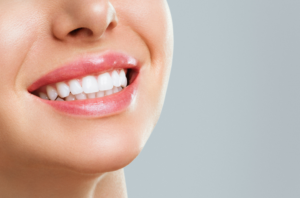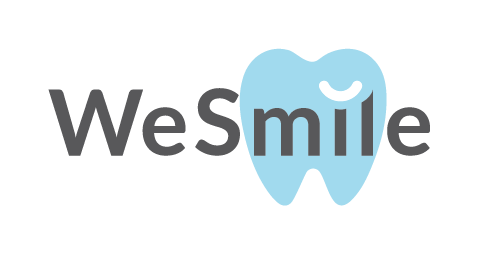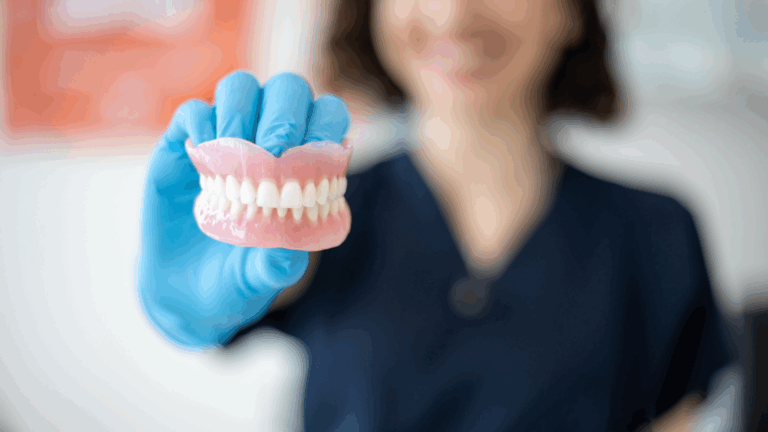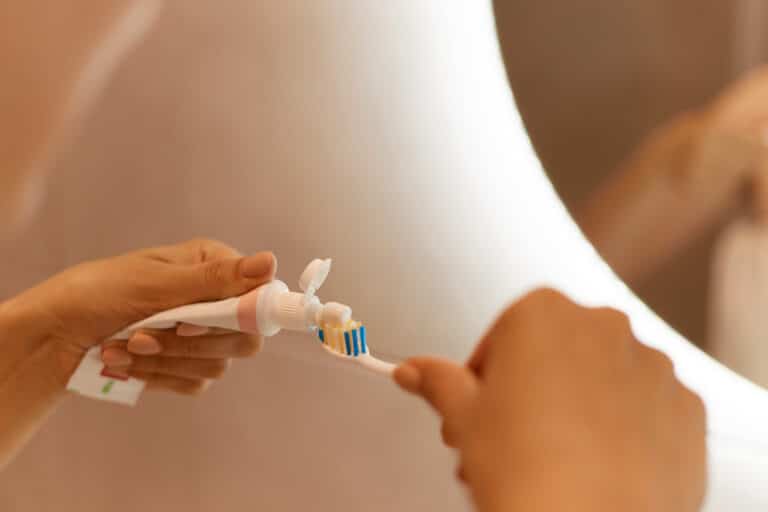A radiant smile has the power to light up a room, convey confidence, and make a lasting impression. However, if you find yourself hesitating to share your smile due to teeth stains, you’re not alone. Stained teeth can often be a source of self-consciousness and concern. In this article, we’ll delve into the causes, risks, and effective solutions for tackling those stubborn stains. Let’s explore the journey towards a brighter, more confident smile!
What are teeth stains?
There are 3 kinds of teeth discolouration: Extrinsic, Intrinsic and age-related teeth stains.
What are extrinsic teeth stains?
Extrinsic tooth stains are the discolouration of the outer surface of the teeth. These are usually caused by external factors such as consumption of certain food and beverages.
What are intrinsic teeth stains?
Intrinsic tooth stains are discolorations within the tooth structure itself, typically affecting the dentin layer beneath the enamel. Intrinsic stains develop due to factors that affect the tooth during its formation or growth.
What are age-related teeth stains?
Age-related teeth stains, also referred to as natural ageing or intrinsic ageing stains, are a type of tooth discoloration that occurs as a result of the normal ageing process. As we grow older, our teeth naturally undergo changes in colour and appearance due to a combination of factors related to both the enamel and dentin layers.
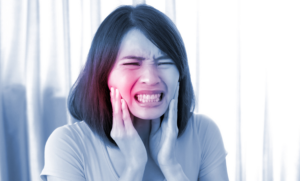
What are the risks of having stained teeth?
Stained teeth aren’t just a cosmetic concern; they can also impact your oral health. Over time, teeth stains can indicate underlying dental problems, such as enamel erosion or gum disease. Additionally, stained teeth might lead to decreased self-esteem and hinder social interactions. Addressing teeth stains is therefore a matter of aesthetics and oral wellbeing.
Is stained teeth related to enamel health?
Stained teeth can indeed be related to enamel health, as the enamel is the outer protective layer of the teeth. Enamel is highly mineralised and resilient, but it can still be susceptible to damage from acidic foods, poor oral hygiene, and certain habits like excessive consumption of staining substances like coffee, tea, red wine, and tobacco.
Over time, these factors can weaken the enamel’s structure, making it more porous and susceptible to absorbing pigments from foods and beverages. This can lead to visible discoloration or staining of the teeth. Therefore, maintaining good enamel health through proper oral hygiene and regular dental check-ups play a crucial role in preventing and managing stained teeth.
What are some causes of teeth stains?
To understand how to prevent teeth stains, we need to unravel their root causes. One of the common culprits is our dietary choices:

Does coffee and tea stain teeth?
That morning cup of joe or soothing cup of tea can be hard to resist, but these beloved beverages can contribute to teeth stains. The dark pigments in coffee and tea, known as tannins, can gradually stick to enamel, leading to discolouration over time.
Do soda drinks stain teeth?
Soda lovers, beware! Carbonated soft drinks contain acids and sugars that create an ideal environment for teeth staining. The combination of acidity and chromogens (stain-causing compounds) can contribute to the yellowing or browning of teeth.
What kind of wine stains teeth?
Whether you prefer red or white, wine enthusiasts may be surprised to learn that both types of wine can stain teeth. Red wine contains intense colour compounds, while white wine’s acidity can weaken enamel, making it more susceptible to stains from other foods and drinks.
Do tomatoes stain teeth?
Tomatoes, while a healthy choice in salads and sauces, possess high acidity levels that can erode enamel. This, combined with their vibrant colour, can contribute to tooth stains.

Does smoking stain teeth?
Smoking doesn’t just harm your lungs; it can also wreak havoc on your smile. The tar and nicotine found in cigarettes can penetrate tooth enamel, leading to stubborn brown or yellow stains.
How does fluoride affect teeth stains?
For example, in areas where the water supply has high levels of fluoride, a condition called fluorosis can occur. This condition leads to intrinsic staining of teeth, resulting in white or brown spots or lines on the teeth.
Can teeth stains be caused by genetics?
Genetics can play a role in the natural shade of your teeth. Some individuals may be more predisposed to develop certain types of stains due to genetic factors. However, lifestyle choices and dental hygiene practices still significantly influence the degree of discolouration.
Do hygiene habits affect teeth stains?
Inadequate oral hygiene practices can lead to the buildup of plaque and tartar on teeth, which can result in surface staining.
How do I get rid of teeth stains?

The good news is that there are effective ways to combat teeth stains and restore your pearly whites to their former glory. Let’s explore some strategies:
Does toothpaste remove teeth stains?
Yes, just look for toothpaste containing mild abrasives or whitening agents like hydrogen peroxide to gently polish away any teeth discolouration.
Does baking soda and water remove teeth stains?
Baking soda, with its mild abrasive properties, can help gently scrub away surface stains. Create a paste with water and baking soda, apply it to your toothbrush, and brush your teeth gently. Since excessive use can lead to enamel wear, we recommend consulting a dentist on such methods as they may cause more harm than good.
How does teeth whitening impact stained teeth?
Teeth whitening, whether performed at a dental clinic or using over-the-counter products, can significantly lighten teeth stains. Professional treatments (which we provide!) often use stronger whitening agents for faster and more noticeable results, but even at-home methods can provide improvement over time.
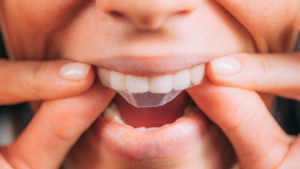
Do teeth whitening strips work better than in-clinic teeth whitening for teeth stains?
In-clinic teeth whitening procedures, carried out by dental professionals, generally yield quicker and more dramatic results compared to at-home methods like whitening strips. However, the effectiveness can vary depending on the severity of stains and individual preferences.
Can dental veneers or bonding fix teeth stains?
Absolutely, both dental veneers and bonding offer effective solutions for addressing stained teeth. These cosmetic dental procedures are designed to enhance the appearance of teeth that have become discoloured or stained by covering them up.
Can regular oral hygiene prevent teeth stains?
Maintaining a good oral hygiene routine by brushing and flossing regularly can help prevent the buildup of stains. In addition to that, going for regular scaling and polishing sessions with your dentist is a great step to take in maintaining a stain-free smile!
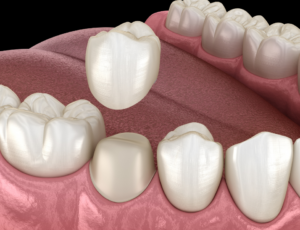
Can crown placement address teeth stains?
Dental crowns are often used to cover and protect teeth that are damaged, discolored, or have undergone extensive dental work. When teeth stains are severe and cannot be effectively treated through traditional teeth whitening methods, a dental crown can effectively cover the stained tooth, providing a durable and cosmetically appealing solution.
Can microabrasion address teeth stains?
Mainly used to address mild to moderate intrinsic teeth stains, microabrasion involves the removal of a very thin layer of enamel from the teeth’s surface using a controlled abrasive substance and a dental handpiece. This process helps to reduce the appearance of intrinsic stains that are embedded within the enamel itself, such as those caused by fluorosis or certain medications. By gently removing the outer layer of enamel, the microabrasion procedure can effectively brighten the tooth’s colour and appearance.
What is internal bleaching?
In cases of localised intrinsic staining, a dentist might perform internal bleaching, where a bleaching agent is placed inside the tooth to lighten the internal discoloration. Typically employed for teeth that have undergone root canal treatment or have suffered trauma, internal bleaching aims to restore a more natural and uniform tooth colour by targeting the underlying cause of the staining.
It’s important to note that with each method of stain prevention, results may vary for every individual. Hence, we highly recommend you to consult your dentist to understand which method would best suit your needs.
Other FAQs
What lifestyle habits cause teeth stains?
Lifestyle habits such as consuming stain-inducing foods and drinks, smoking, poor oral hygiene, and neglecting regular dental check-ups can all contribute to teeth stains.
Can an infant have his/her teeth whitened?
Teeth whitening procedures are not recommended for infants or young children. Their teeth are still developing, and their enamel is more porous, making them more susceptible to damage from whitening agents. We recommend children to come in for a check up where our dentists will recommend appropriate treatments for teeth stains.

Does mouthwash remove teeth stains?
While mouthwash can freshen breath and kill bacteria, it’s not typically effective in removing stubborn teeth stains. However, some mouthwashes contain ingredients that help prevent new stains from forming.
Which mouthwash brands are good for reducing teeth stains?
Look for mouthwash brands that contain fluoride and antimicrobial properties. Some popular options that contribute to stain reduction include Colgate Total, Listerine Healthy White, and Crest Pro-Health.
Understanding teeth stains and rediscovering your radiant smile
Teeth stains, whether intrinsic or extrinsic, can have a significant impact on your self-confidence and overall appearance. By recognising the causes and available solutions for teeth staining, you’re empowered to take control of your smile’s brightness. Whether you’re dealing with stubborn intrinsic discolorations or surface stains from daily habits, our dedicated team is here to guide you toward a personalised solution and prevention measures. Don’t let stains hold you back—take the first step towards a confident, vibrant smile by booking a consultation session with us today!
